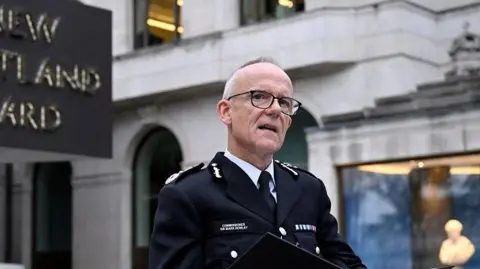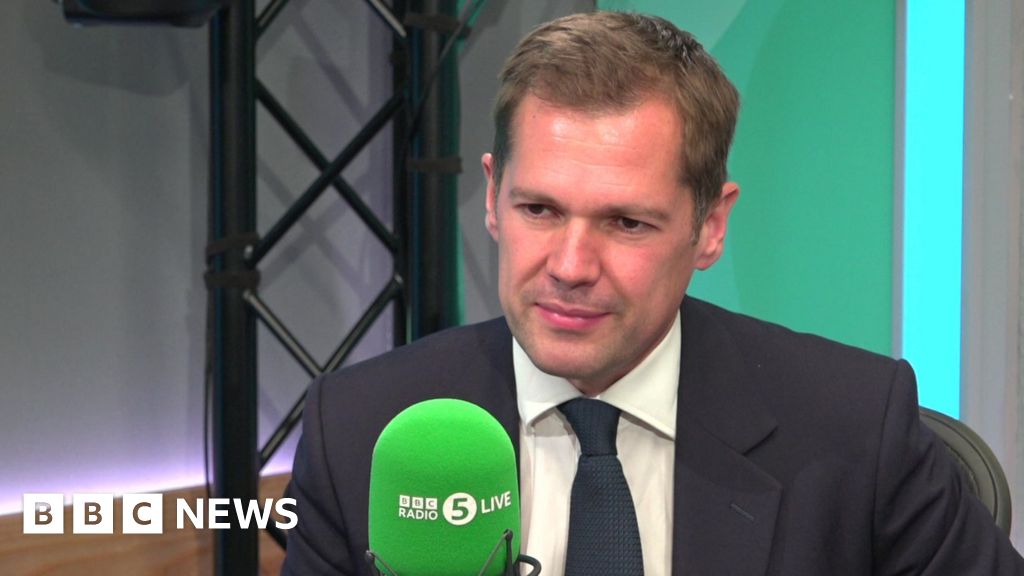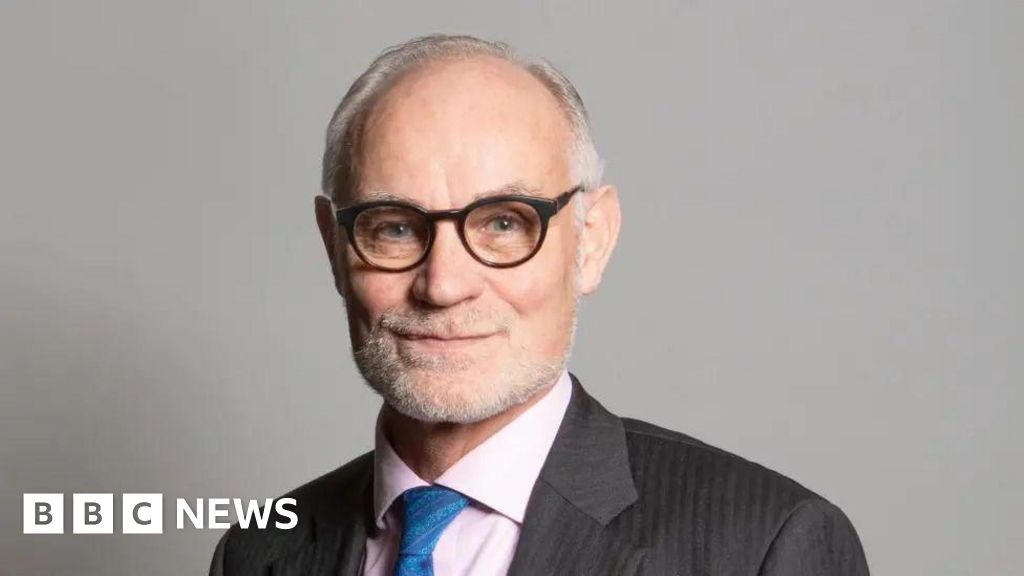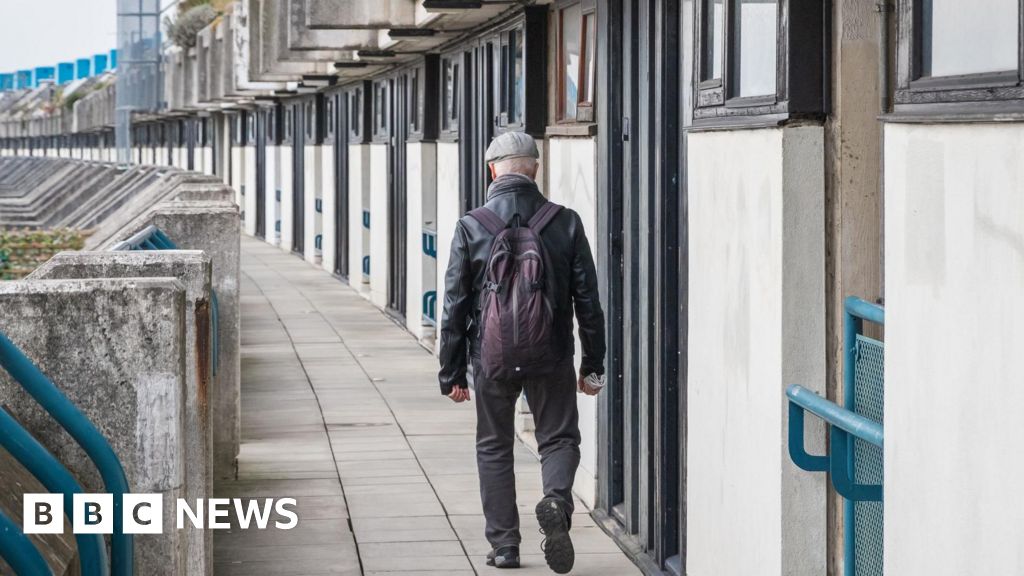ARTICLE AD BOX

 Reuters
Reuters
Sir Mark Rowley
The government's pledges on crime will not be kept without substantial extra money for policing in next month's spending review, the head of the Metropolitan Police has said.
In an article for the Times, Met Commissioner Sir Mark Rowley referred to a decade of underinvestment and new pressures on police forces.
He said because of those reasons, the importance of the forthcoming spending review could not be underestimated
The Home Office said it was "backing the police to protect our communities and keep our streets safe".
Sir Mark previously warned of "eye-watering choices" and "substantial" cuts unless the government stumped up more cash for police in England and Wales.
His editorial on Wednesday, co-written with five chief constables from forces around England, referred to the police as "overstretched" and "saddled with debt, broken buildings and out-dated technology".
He said these police forces were then having to respond to increasing demand and more social volatility - such as last summer's riots - as well as pressures from the recent emergency release of prisoners.
In what amounts to a direct plea to the chancellor, Sir Mark said that without significant investment there would be no restoration of neighbourhood policing and no halving of knife crime or violence against women and girls - which are all government promises.
The policing settlement, Sir Mark argued, will directly influence if officers can deliver the government's pledges.
He added that "a lack of investment will bake in the structural inefficiencies for another three years and will lose a once in a generation opportunity to reform the service".
Chancellor Rachel Reeves is due to deliver her spending review on 11 June, which is when the government outlines how it will fund public services over several years.
She will set out the government's day-to-day spending for four years to 2028‑29, as well as for capital spending for five years to 2029‑30.
The amount of funding that policing gets is set at spending reviews and the majority of the money comes from the Home Office. But the detail of the funding is outlined and agreed every year by the House of Commons at a police funding settlement.
A Home Office spokesperson said: "We are backing the police to protect our communities and keep our streets safe with up to £17.6bn this year, an increase of up to £1.2bn.
"This includes £200m to kickstart putting 13,000 additional neighbourhood police officers, PCSOs and special constables that the public will see back on their streets and patrolling communities, as part of our Plan for Change."
More "bobbies on the beat" has been a central promise of Sir Keir's government.
Last month, he said 2,500 police neighbourhood officers and nearly 400 PCSOs would be recruited over the next 12 months, as part of the target to hit 13,000 by 2029.
Earlier this year some forces warned that existing funding levels meant they were making cuts to existing officers this year. Lincolnshire Police said it would be cancelling its forthcoming intake of new police officers and Essex Police said it was planning to make all 99 of its PCSOs redundant - although both forces reversed the plans after a funding package from the government.
The government's plan for neighbourhood policing also involves patrols in "hotspot" areas during the busiest periods, such as Friday and Saturday nights.
An anti-social behaviour lead in every force will be expected to develop tailored action plans with residents and businesses.
Reducing knife crime and violence against women and girls is also among the government's priorities.
Before the election, Labour promised to halve violence against women and girls, put domestic abuse specialists in police control rooms, set up dedicated courts for rape trials, and also halve knife and serious violent crime.

 1 day ago
15
1 day ago
15








 English (US) ·
English (US) ·